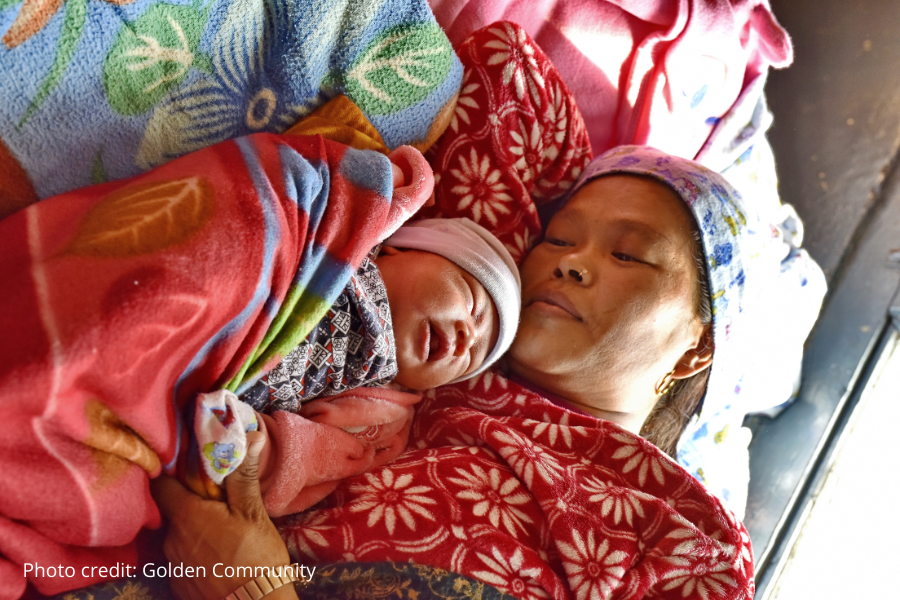
The situation in Nepal is looking dire. Oxygen reserves are running low and hospitals are turning away patients. COVID-19 cases have increased by 668% in the previous two weeks. As government and international aid attempt to curb the outbreak and prevent direct COVID-19 related deaths, we must not forget that routine care needs to still be provided, especially to pregnant women and their babies during their most vulnerable time, childbirth.
Data released in 2020 has already shown that the COVID-19 response in Nepal has widened inequalities for maternal and newborn health and has increased stillbirths and neonatal mortality.
This begs the question, how can we prevent women and their babies becoming Covid-collateral?
Vital research conducted during the first wave has provided us with the knowledge and recommendations to protect the most vulnerable. One such study, conducted in Nepal and released today, explores the disruption of maternity services due to the COVID-19 pandemic and the quality of care around the time of birth.
What can we take away and implement from this study? Our three key messages are below.
1. Place of childbirth has changed dramatically during the COVID-19 pandemic
During the first wave of the COVID-19 pandemic in Nepal, a study found that about half of all pregnant women delivered at home. Our paper shows that those delivering in facilities also changed their care-seeking behaviour, avoiding large hospitals and favouring smaller institutions. This evidence on shifting patterns can be used to inform resource allocation to hospitals responding to increased demand.
2. Quality of care is seriously compromised where demand outstrips supply
We found that the sheer number of deliveries in an institution impacted on the quality of care women received. During the pandemic, care has also been better for women who reported coming from a COVID-19 hotspot area and among those who gave birth in the smaller hospitals.
However, if hospitals normally facing low volumes of deliveries become overwhelmed with demand as a consequence of the pandemic, then the quality of care may be jeopardized, and more women may opt to deliver at home without care or contact with health services. There is an urgent need for a system-wide approach to sustain quality in the face of continuing disruptions owing to COVID-19.
3. Maintaining contact with pregnant and recently-delivered women is essential
So with this valuable insight, what do we recommend? Firstly, protecting the quality maternity services is essential during the pandemic. Women need access to timely information to guide if and where they seek institutional care, for both normal and emergency deliveries. Similarly maintaining contact with those women and their newborns who deliver outside the health system is key to offering postnatal care and support. Relevant technologies in a pandemic setting when travel is restricted, such as mobile phones, maybe be (literally) life-lines for pregnant women in Nepal and many other countries.
Our postgraduate taught courses provide health practitioners, clinicians, policy-makers, scientists and recent graduates with a world-class qualification in public and global health.
If you are coming to LSHTM to study a distance learning programme (PG Cert, PG Dip, MSc or individual modules) starting in 2024, you may be eligible for a 5% discount on your tuition fees.
These fee reduction schemes are available for a limited time only.
